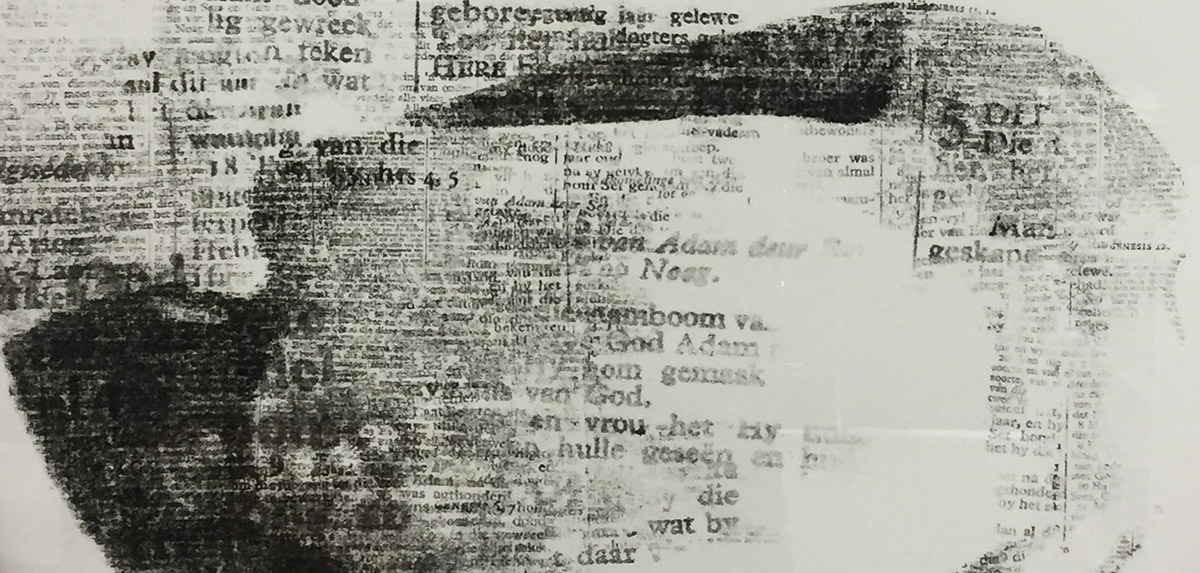
Sara Osborne is Assistant Professor of English and Director of Classical Education at the College of the Ozarks and the author of Reading for the Long Run (CiRCE Press, 2023).
As both a writer and a writing instructor, I am often reminded of the multifaceted nature of the writing task. The writer – student and teacher alike – both acts and reacts to the words and sentences that build paragraphs and articles and essays. As he works, he simultaneously shapes and is shaped; she both moves and is moved. And somehow, in this mysterious craft, more than thoughts and poems and stories arise from such labour. The writer is himself transformed, his character honed by hammering out his art. Writing is a formative act.
Formation begins early for the writer with eyes to see the truth that confronts all honest artists: we are weak, dependent, fragile makers – yet God calls us to the task of sub-creation: “… made in [his] image, [we are] privileged with the gift of speech and language, and allowed by [him] to be word-bearer[s].”[1] How can we ever approach such a calling, much less pursue it? By following the clear path of Scripture: weakness is the way (2 Cor 12:9).[2] Remembering the age of Abraham, the speech impediment of Moses, the poverty of Ruth, and the backstory of Paul, we begin from a posture of humility. The Spirit of God enables the Christian writer to see dependence as good, humility as proper. In their book Charitable Writing, authors Gibson and Beitler argue that “humility ought to be understood as the first writing virtue, just as humility has been traditionally considered the ‘first’ of the Christian virtues.”[3] In order to embrace the power of the gospel, we must first recognize our need for it; likewise,
in order to create under the banner of Christ our King, we must first acknowledge our utter dependence upon him to overcome our weakness with his power. We turn our eyes towards Jesus and seek to imitate his example: we lead by serving.
While a writer’s service to her reader may take numerous forms, all stem from the Scriptures’ greatest commandment (Matt 22:36–40). In order to love God and love my neighbour through what and how I write, I must begin by considering my neighbour: Who is he? What are her needs? What else is vying for his time? How much fatigue or energy might she bring to the reading task? What suffering has he endured? What gift can I give to encourage her soul? While different genres of writing may call for different kinds of questions, one truth is clear: it is difficult for a writer to serve a reader he or she has never considered. An awareness of the other is an essential element of good writing, and in God’s divine economy, cultivating this posture shapes the writer as much as it serves the reader.
Care for the reader compels a writer toward empathy, and such empathy shapes the writing task in surprising ways. More than content or tone is shaped by considering the other; the writer must also labour to remove obstacles to understanding, increase ease of connection, vary sentence length and structure in a way that delivers ideas to the reader with ease. A compassionate writer keeps an eye on her reader at all times, looking for ways to best serve the feast of poetry or platter of persuasion. Such focus shapes a product, of course; however, it also shapes the writer, as he struggles to strip off his pride and attend to another. Any writer attempting such a feat becomes instantly aware of the friction produced from fighting sin: pride is not so easy to shrug off! Empathizing with someone entirely unlike us requires kindness, perseverance, patience and self-control: fruits of the Spirit! (Gal 5:22–23). Here the writer’s humility must meet her hope – the very Spirit of God at work in his vessels.
This Godward hope propels the writer to steward her craft well. Indeed, the craft of writing comes with great responsibility:
[Author] Richard Weaver argues … that the capacity to fashion sentences is a wondrous, even terrible power: “The liberty to impose this formal unity is a liberty to handle the world, to remake it, if only a little, and to hand it to others in a shape which may influence their actions.”[4]

Wielding words well requires a certain grace – Spirit-borne help for a difficult task – because sub-creation entails a mysterious power. Crafted words may either build up or tear down (Eph 4:29). The virtue of humility must be ever learned, an attitude of prayer always present. Author and poet Malcolm Guite offers a beautiful liturgy to tune our hearts for the writing task:
Lord may I not so much find the right words
as allow the right words to find me,
not so much compose
as allow you to compose me.
And when the words come,
Lord, help me to welcome them,
to listen for their wisdom
and to care for them.[5]
In essence, Lord, help me steward these words. This too reflects the creation of Genesis 1:28–31; here “we … engage in another creative activity present in the Genesis account. After making humans, God tells them to care for what he has made.”[6] The labour of writing demands that the writer slow his art enough to consider his words – each one, its neighbours and counterparts. Such toil presses us further into dependence on the Spirit, as if returning to the feet of Jesus with each subsequent draft. In that posture is the writer’s hope: “From of old no one has heard or perceived by the ear, no one has seen a God besides you, who acts for those who wait for him” (Isa 64:4).
The Christian writer does not wait in vain. Throughout the tasks of editing and revision – even in the seemingly futile moments of staring blankly at an unsatisfactory page – the Spirit of God is still at work. While we attempt to shape our words, He is shaping us. The triune God is teaching us community and hospitality: “[t]o revise is to welcome the stranger into our thinking.”[7] We may begrudge this time-intensive labour, but Scripture offers a different perspective: through
trials and obstacles, our writing is not the only organism being moulded; our very faith is being refined – and that by a generous God who gives grace to all who ask (Jas 1:2–5).
To craft a piece of writing is both a labour and a gift, not unlike the Christian faith. We come to the cross empty-handed, “but God … even when we were dead in our trespasses, made us alive together with Christ” (Eph 2:4). That same grace moves within us through the Holy Spirit, calling us to lives of good works lived in dependence on him. The works of a writer – whether an essay turned in to a teacher, an article submitted to a journal, or a manuscript delivered to a publisher – are rarely handed off with complete satisfaction. Yet even in its final act, the writing process offers us one more opportunity to grow in faith as we submit our craft to others. Remade, we pursue good works; crafted, we write our way into increasing virtue.
[1]. Malcolm Guite, “A Liturgy Before Writing,” in vol. 3 of Every Moment Holy, ed. Douglas McKelvey and Pete Peterson (Nashville: Rabbit Room Press, 2023), 80.
[2]. I am also indebted to J. I. Packer, whose book, Weakness is the Way: Life with Christ our Strength, has influenced my use of this phrase.
[3]. Richard H. Gibson and James E. Beitler III, Charitable Writing: Cultivating Virtue Through our Words (Downers Grove: InterVarsity Press, 2020), 37.
[4]. Scott F. Crider, The Office of Assertion (Wilmington: ISI Books, 2005), 73.
[5]. Guite, “A Liturgy Before Writing,” 81.
[6]. Gibson and Beitler, Charitable Writing, 147.
[7]. Gibson and Beitler, Charitable Writing, 155.

The Kirby Laing Centre for Public Theology in Cambridge. Charity registered in England and Wales. Charity Number: 1191741
Kirby Laing Centre, The New Mill House, Unit 1, Chesterton Mill, French’s Road, Cambridge, CB4 3NP
© 2022 The Kirby Laing Centre for Public Theology in Cambridge